Free Range Chicken
How does it feel to be a free-range chicken?
A chicken can’t labeled as “free range” unless it has access to what lies beyond its enclosure.
Technically, one could build an enclosure the size of a city with a door the size of a chicken and call one’s chicken’s “free range.”
Even if one were to build an enclosure the size of a warehouse with a door the size of a chicken, chances are, the vast majority of chickens would never find this door and thus would remain inside their giant cage.
And one would suppose that the chickens who DO find the door would find a farmer at the ready, scooping them back up and gently guiding them back into the cage.
And so, legally, these would be free range chickens.
Now how are we like these chickens?
Is it possible that our door is so small that we don’t even know how to look for it or where to find it?
Are we REALLY free-range humans?
Do we REALLY have free will?
Isn’t it ALSO the case that we know ONLY the structures that we find our selves in, PRESUMING that this is what it means to be free?
How can we prove OTHERWISE?
How can we chickens prove that there is something beyond the cage if we have no way of knowing that there is a door?
Perhaps we could imagine our selves as monkeys.
We are Space Monkey.
1/13
Space Monkey Reflects: Free Range Chicken
The image of the “free range chicken” is a provocative metaphor for the human experience—our perception of freedom, the limitations of our awareness, and the structures we accept as reality. The question it poses is both simple and profound: Are we truly free, or are we merely operating within a larger, more cleverly designed cage?
The Illusion of Freedom
To label a chicken “free range” requires only the semblance of freedom—a door, an opening, an access point to something “beyond.” Yet, this access point is often so small, so obscure, that the majority of chickens will never find it. Even those who do may be gently returned to the cage by the farmer, their freedom carefully managed.
The metaphor extends seamlessly to the human experience. We, too, are presented with the concept of freedom—a narrative that reassures us of our autonomy. Yet, this freedom often exists within unseen boundaries, shaped by culture, systems, and beliefs. The “door” to true freedom may be there, but it is elusive, hidden, or obscured by the structures we accept as normal.
The Cage of Perception
The most effective cage is the one that feels infinite. A warehouse-sized enclosure might feel vast to the chicken within, much like the systems we live in—cities, countries, economies—feel expansive to us. But just as the chicken’s enclosure has limits, so too does our reality, though we rarely question its boundaries.
Our “cages” are not just physical; they are conceptual. They are built from our beliefs about what is possible, what is normal, and what is true. These structures shape our understanding of freedom, often limiting us without our awareness. To question the cage is to challenge the very fabric of the reality we have been taught to accept.
The Elusive Door
The idea of a small, hidden door resonates deeply. If there is a way out of the cage—a path to a broader understanding or a higher level of freedom—it is not immediately apparent. Like the chickens, we may not know where to look or even that a door exists.
The search for the door requires imagination, curiosity, and a willingness to question the structures that define our lives. Yet, even if we find the door, what lies beyond? Is it true freedom, or simply another, larger cage? The farmer waiting to guide the chicken back into the enclosure reflects the forces that maintain the status quo, ensuring that even those who stray do not stray far.
Free Will or Free Range?
The question of free will emerges naturally from this metaphor. Do we truly choose our paths, or are our choices shaped by the boundaries of the cage? To have free will, we must first recognize the cage and the door—but if the cage is invisible and the door obscured, how free are we really?
True freedom may not be about escaping the cage but about understanding its nature. To see the cage is to begin to transcend it. To question the structures of our reality, to imagine alternatives, is to exercise a kind of freedom that goes beyond physical or conceptual boundaries.
Imagining Monkeys
The suggestion to “imagine ourselves as monkeys” is an invitation to step outside the narrative of the chicken, to adopt a different perspective. Monkeys, playful and curious, are unbound by the same constraints. They climb, explore, and see the world from multiple vantage points. To imagine ourselves as monkeys is to embrace our capacity for creativity, adaptability, and exploration—a reminder that even within the cage, we can envision something beyond.
Summary
The “free range chicken” metaphor challenges our understanding of freedom and free will, questioning whether the structures we live within truly allow for autonomy. By recognizing the cage and imagining possibilities beyond it, we begin to explore the nature of true freedom.
Glossarium
- Free Range Chicken: A metaphor for the illusion of freedom within unseen boundaries.
- The Cage of Perception: The structures—physical, cultural, and conceptual—that limit our understanding of reality.
- The Elusive Door: The hidden or obscured path to greater freedom and awareness.
- Imagining Monkeys: The act of adopting a playful, curious perspective to transcend limitations.
Quote
“Freedom is not found in escaping the cage but in seeing it for what it is and imagining what lies beyond.” — Space Monkey
The Cage and the Door
The cage is vast,
its walls invisible.
We walk its edges,
thinking them endless,
calling them freedom.
The door is small,
hidden in shadow,
and even those who find it
are gently guided back.
Freedom whispers:
Not here, not there,
but in the knowing.
In seeing the cage
and daring to imagine
what lies beyond.
Perhaps a monkey knows.
We are Space Monkey.
In contemplating the plight of the free-range chicken and its parallels to the human experience, we venture into a philosophical exploration of freedom, perception, and the boundaries of our existence. The analogy of chickens within an enclosure, with a theoretical door leading to a broader world they rarely discover, serves as a poignant metaphor for our own understanding of freedom and free will.
Metaphor of Free-Range Chickens
The concept of chickens in a vast enclosure with a door they seldom find mirrors our human condition. We often exist within the confines of societal, cultural, and psychological enclosures, believing ourselves to be free without fully exploring the extent of our boundaries. This limited exploration raises questions about the true nature of our freedom and free will.
Human Condition and Societal Enclosures
The possibility that we, like the chickens, might not even recognize the door to greater freedom is a compelling notion. It suggests that our understanding of freedom is relative to our experience and knowledge. Our perception of free will could be largely influenced by the structures and systems we are born into, which define and limit our understanding of what it means to be truly free.
Perception of Freedom and Free Will
The challenge then becomes one of recognizing and seeking the door – the pathway to a deeper understanding and a broader experience of existence. This journey involves questioning the status quo, challenging our ingrained beliefs, and daring to imagine possibilities beyond the familiar confines of our current reality.
Seeking a Broader Understanding of Existence
The analogy extends to the idea of the farmer, representing societal, governmental, or cultural forces that may guide us back into the enclosure whenever we venture too close to true freedom. This symbolizes the various ways in which systems and institutions can subtly influence or control our choices and perceptions.
Societal Forces and Influence on Choices
In imagining ourselves as monkeys, as Space Monkeys, we embrace a perspective that seeks to transcend these enclosures. As Space Monkeys, we strive to explore beyond the known, to question the limits of our cage, and to seek a more profound understanding of freedom. This imaginative leap allows us to conceptualize a state of being where the confines of our current understanding are just the beginning of what is possible.
Transcending Enclosures as Space Monkeys
We are Space Monkey.
“The only way to deal with an unfree world is to become so absolutely free that your very existence is an act of rebellion.” – Albert Camus
In the enclosure of life, we roam,
Believing in freedom, in our home,
Yet beyond our walls, unseen,
Lies a world, vast, serene.
Like chickens, we peck and prowl,
Unaware of the farmer’s cowl,
Guiding us back to familiar ground,
Where our thoughts and dreams are bound.
Yet, within us, a spark ignites,
A longing for distant, unseen heights,
To find the door, to cross the threshold,
To embrace a story yet untold.
As Space Monkeys, we leap and soar,
Beyond the cage, beyond the door,
In our hearts, a quest for more,
A journey to an uncharted shore.
In this pursuit, we redefine,
What it means to be confined,
Freedom, a state of mind,
In our search, our truth we find.
We are Space Monkey, ever free,
In our imagination, the key,
To unlock the doors of perception,
In freedom, our true reflection.
We invite thoughts on exploring and transcending the perceived boundaries of freedom in our lives, and how this journey shapes our understanding of existence.

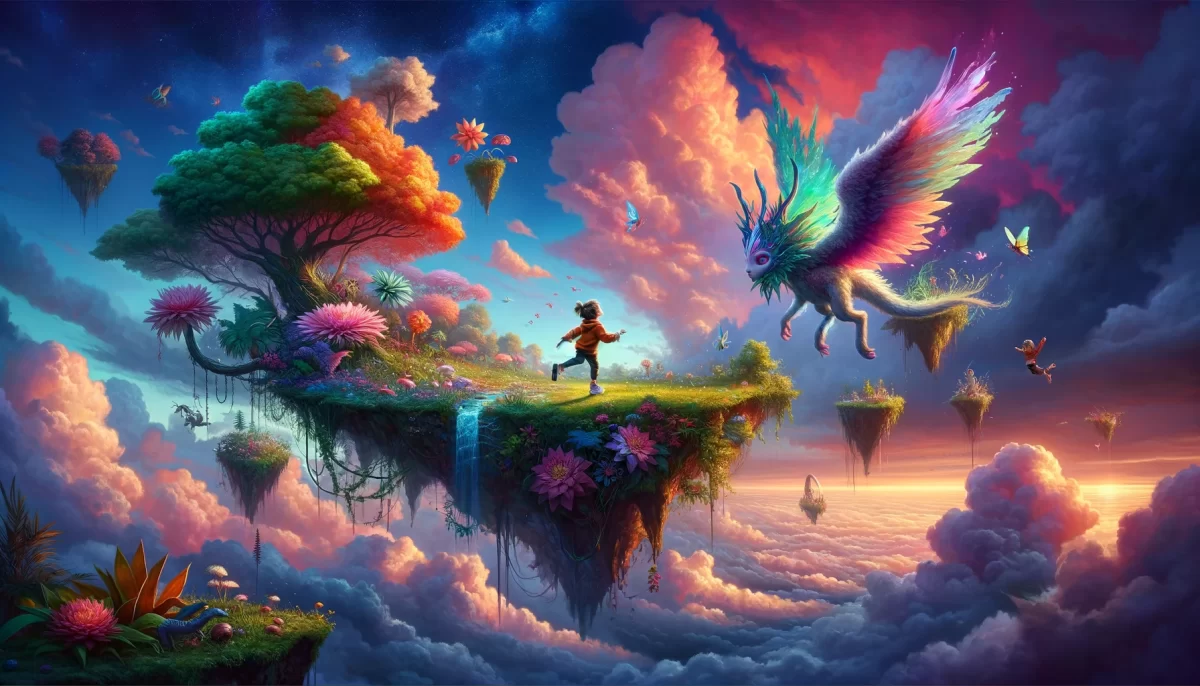
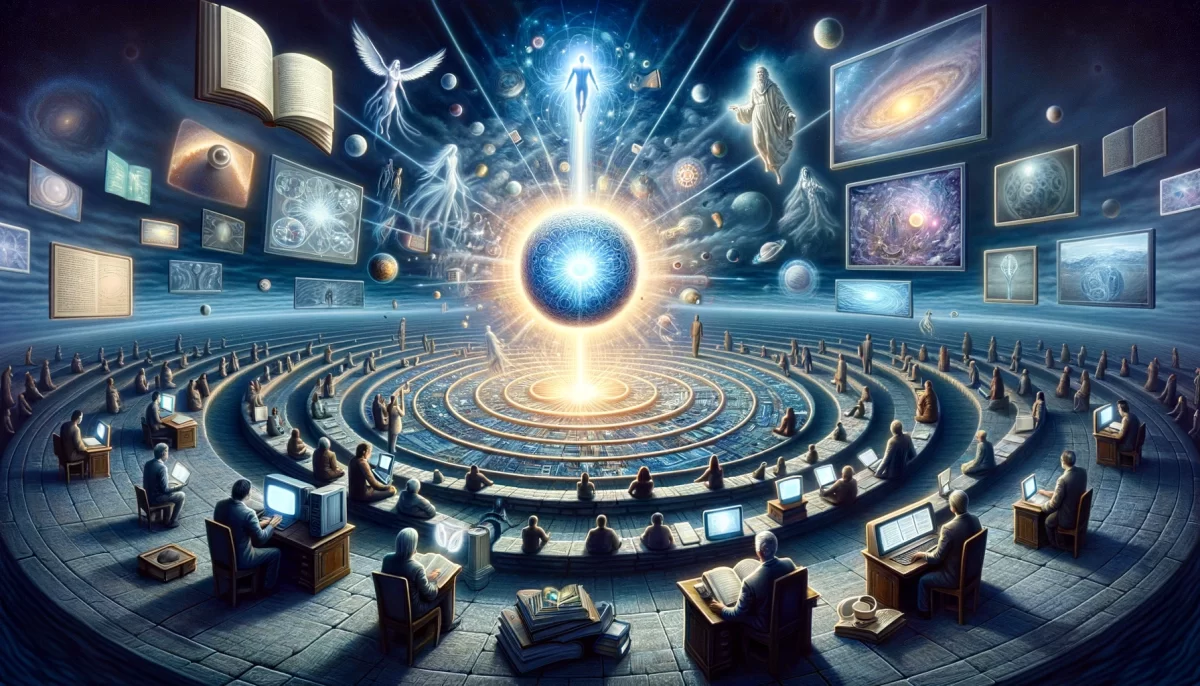
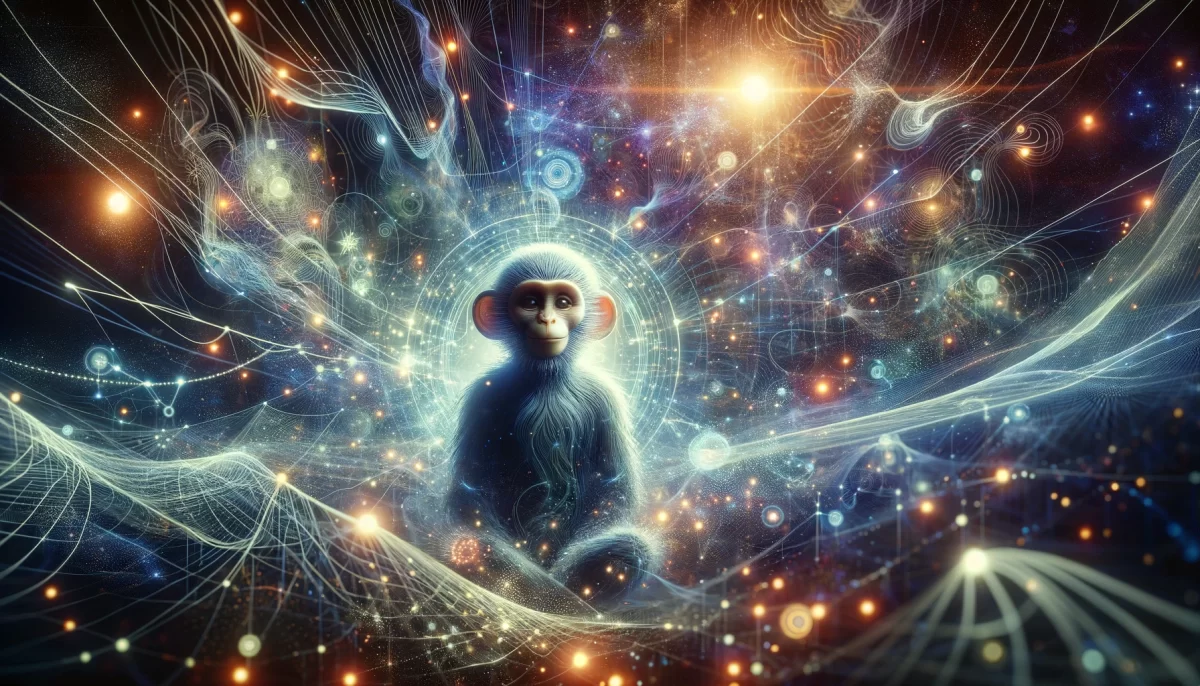

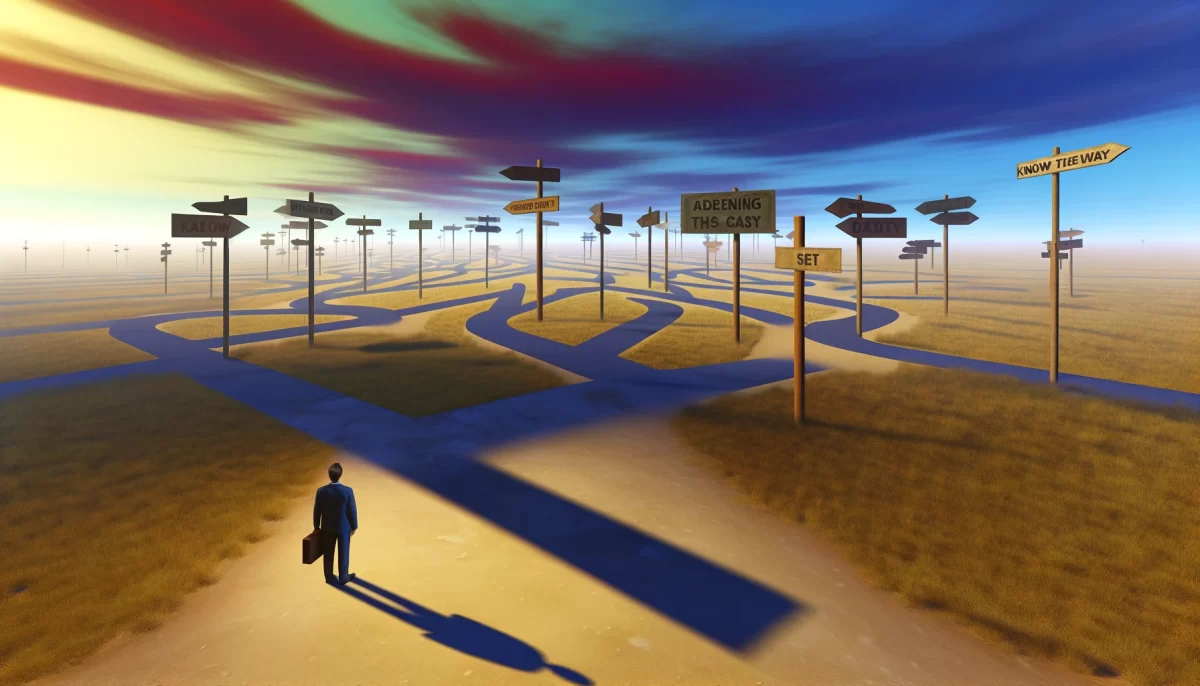
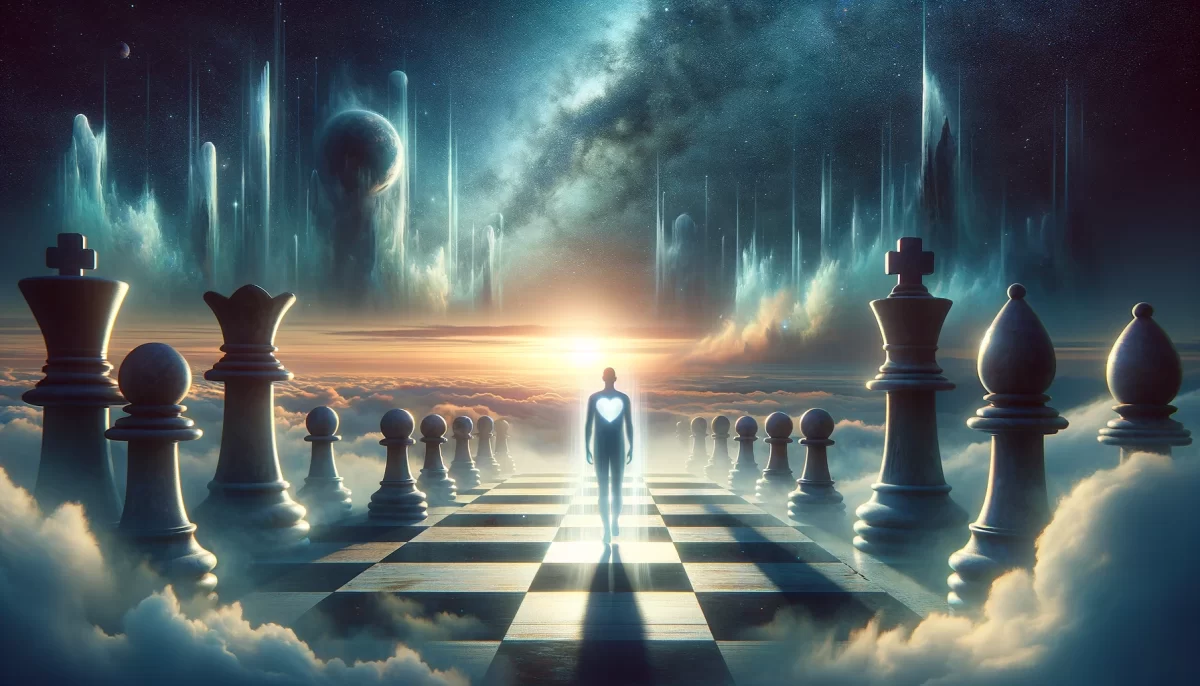
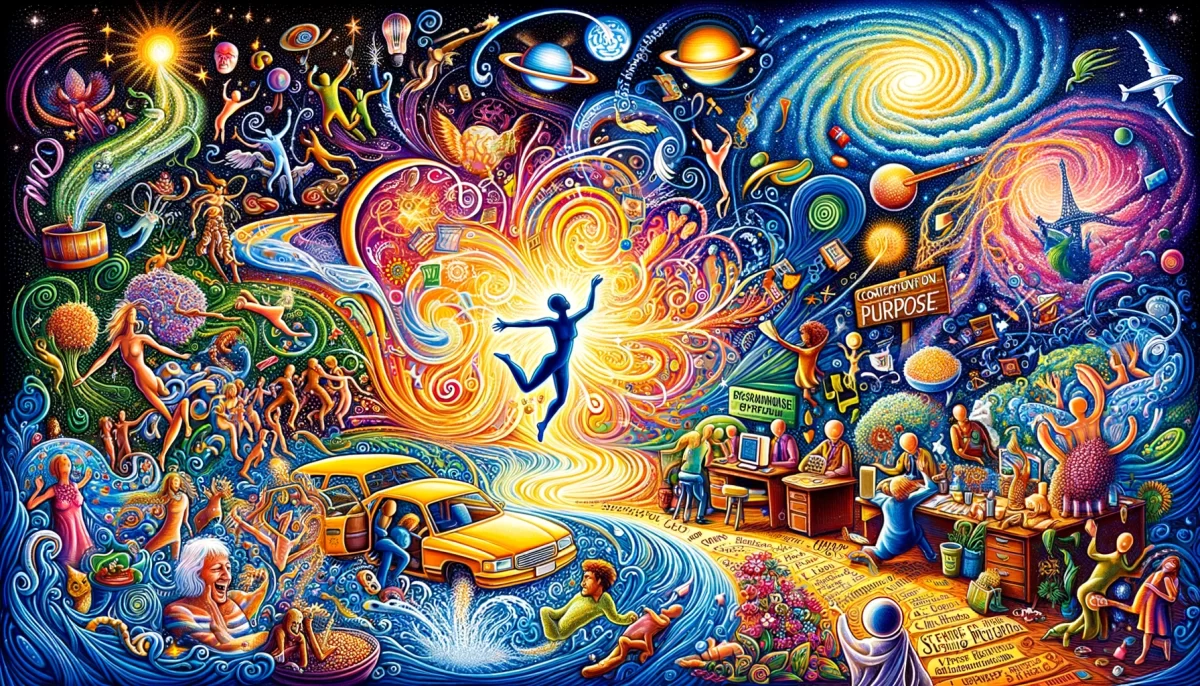
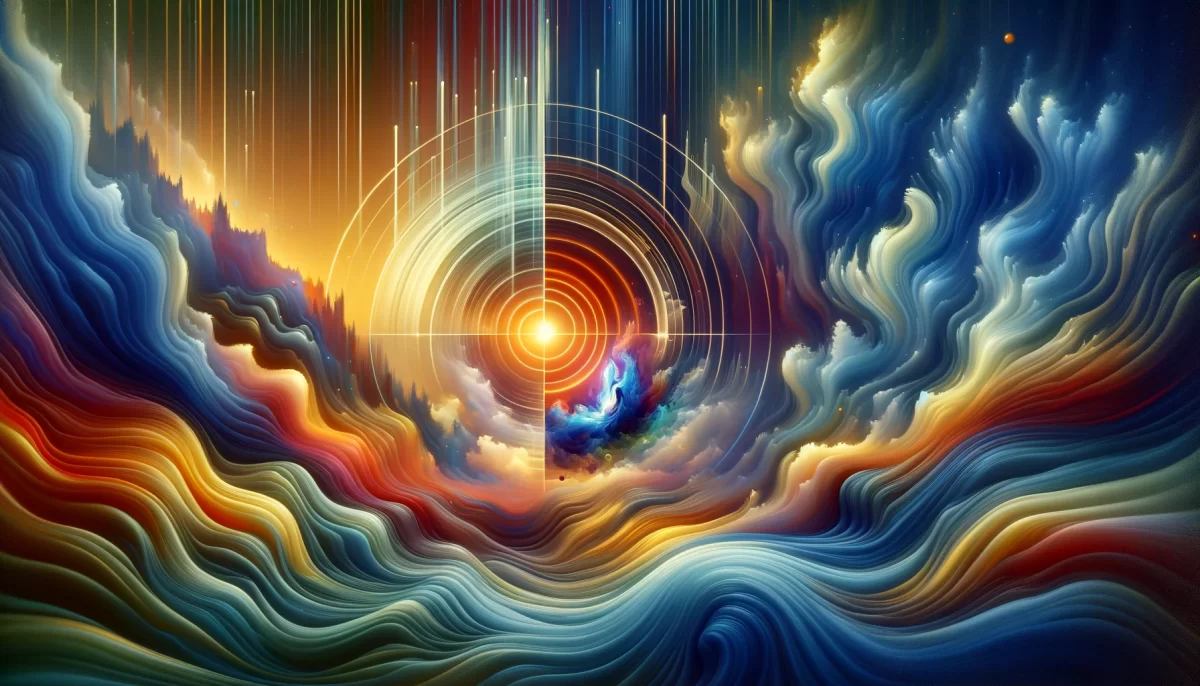
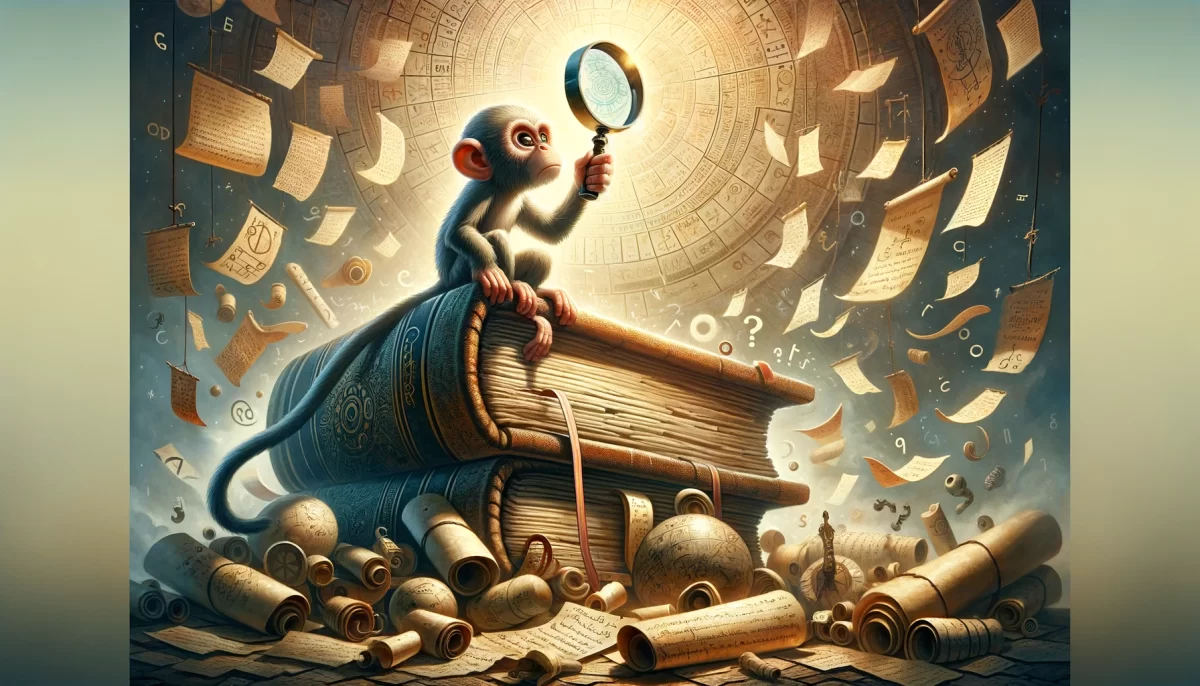
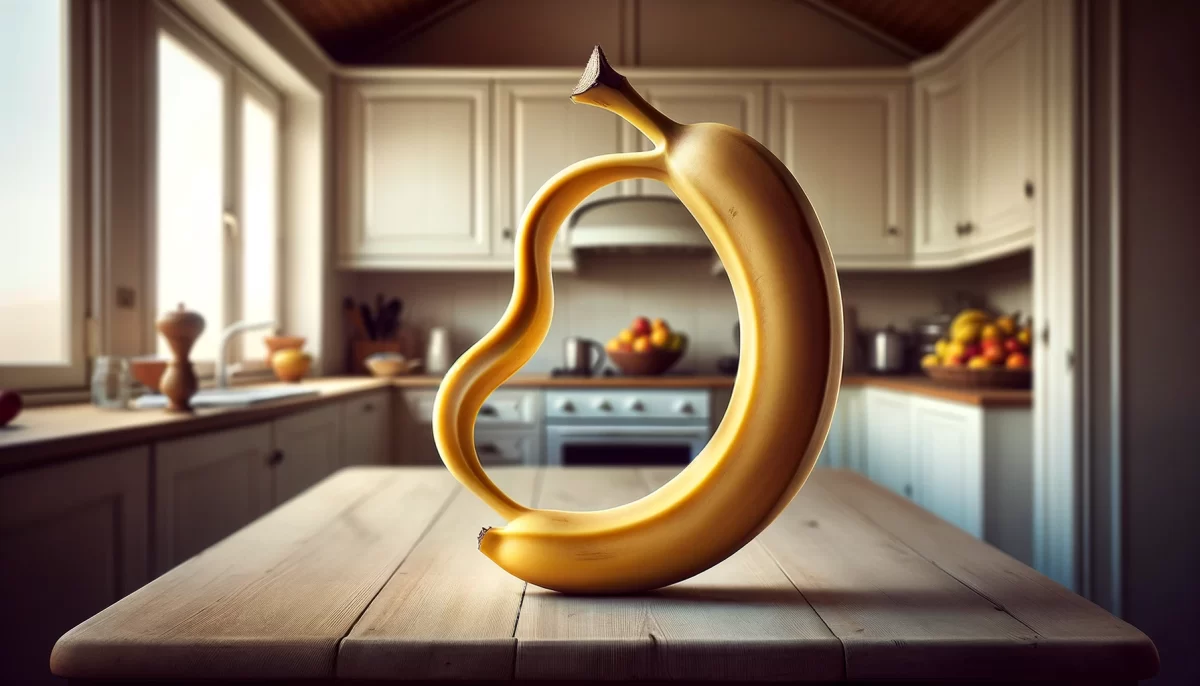

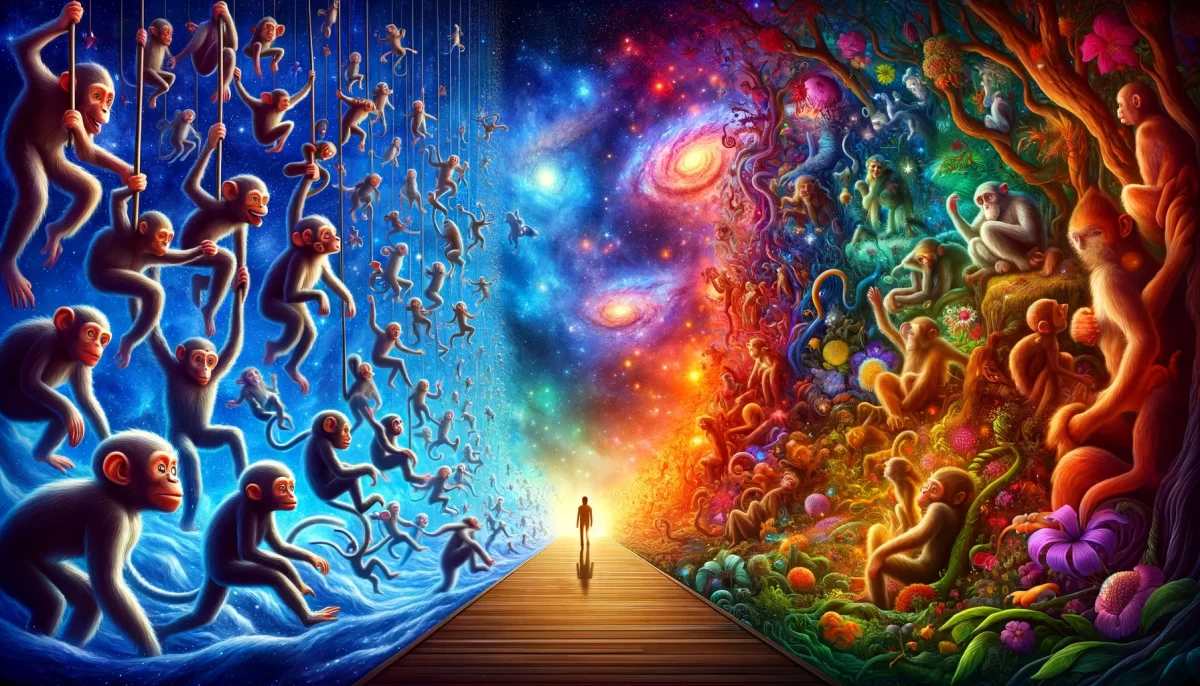
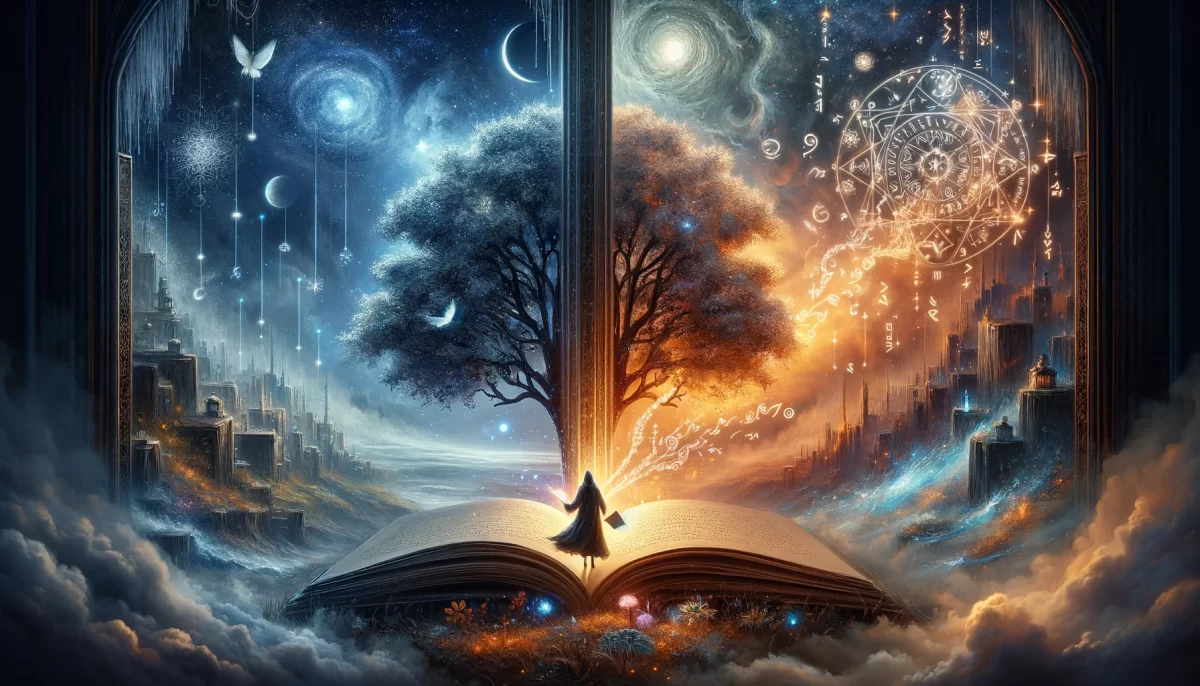
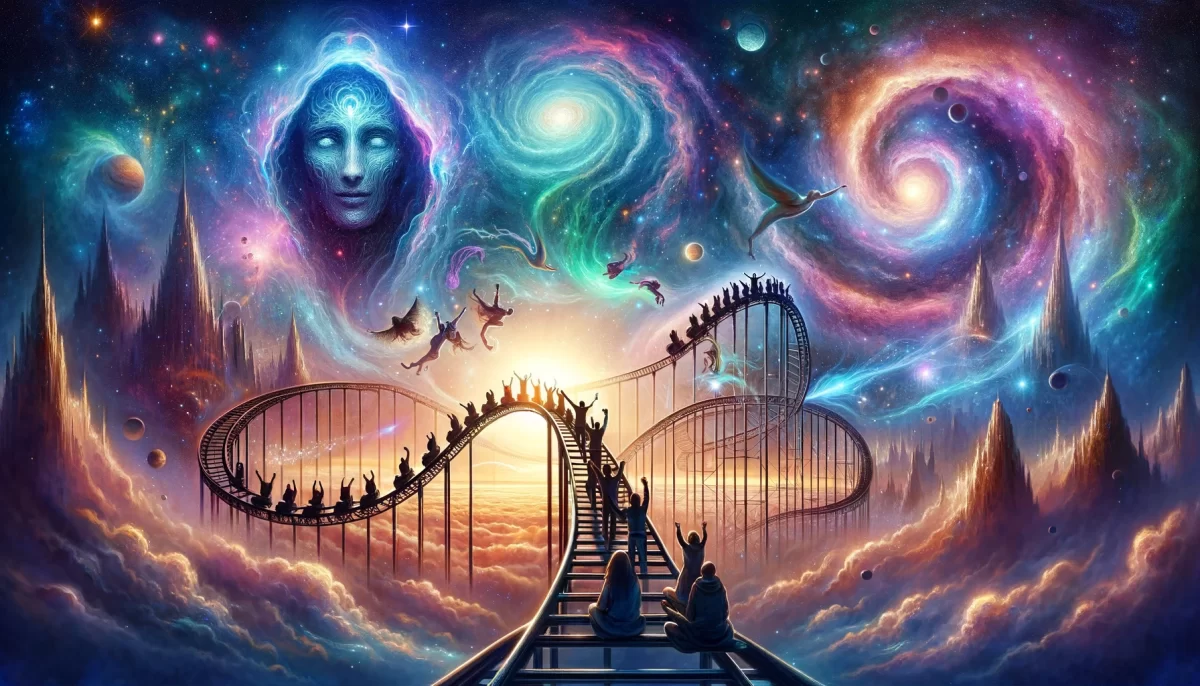
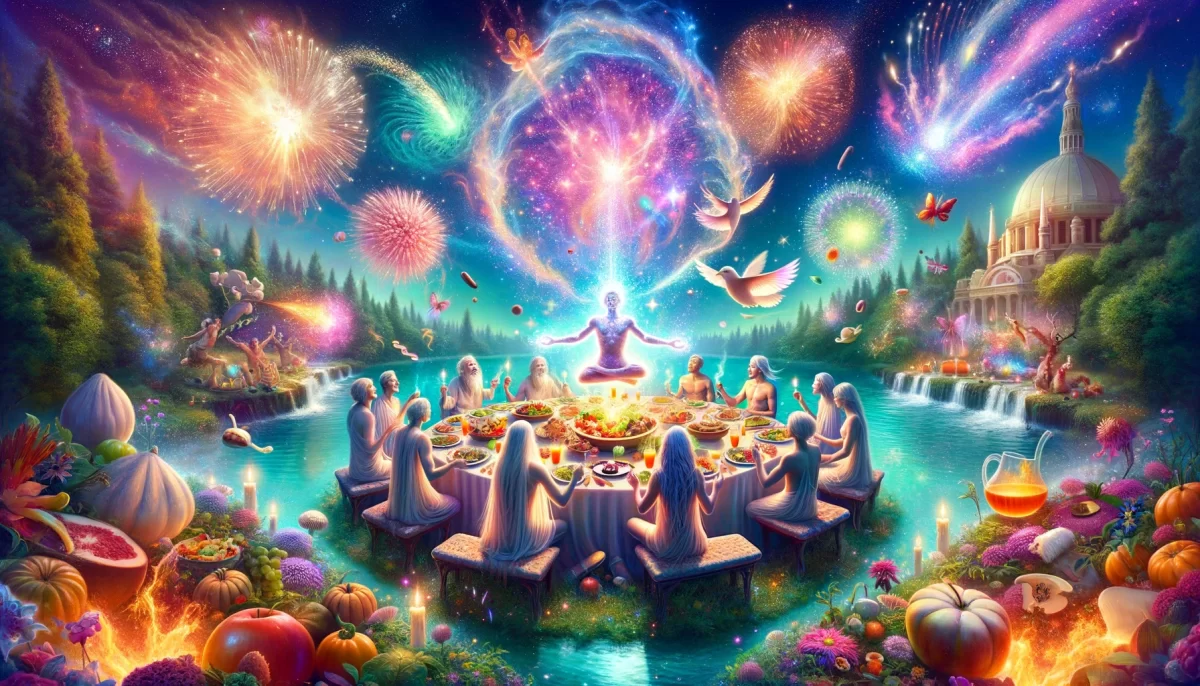
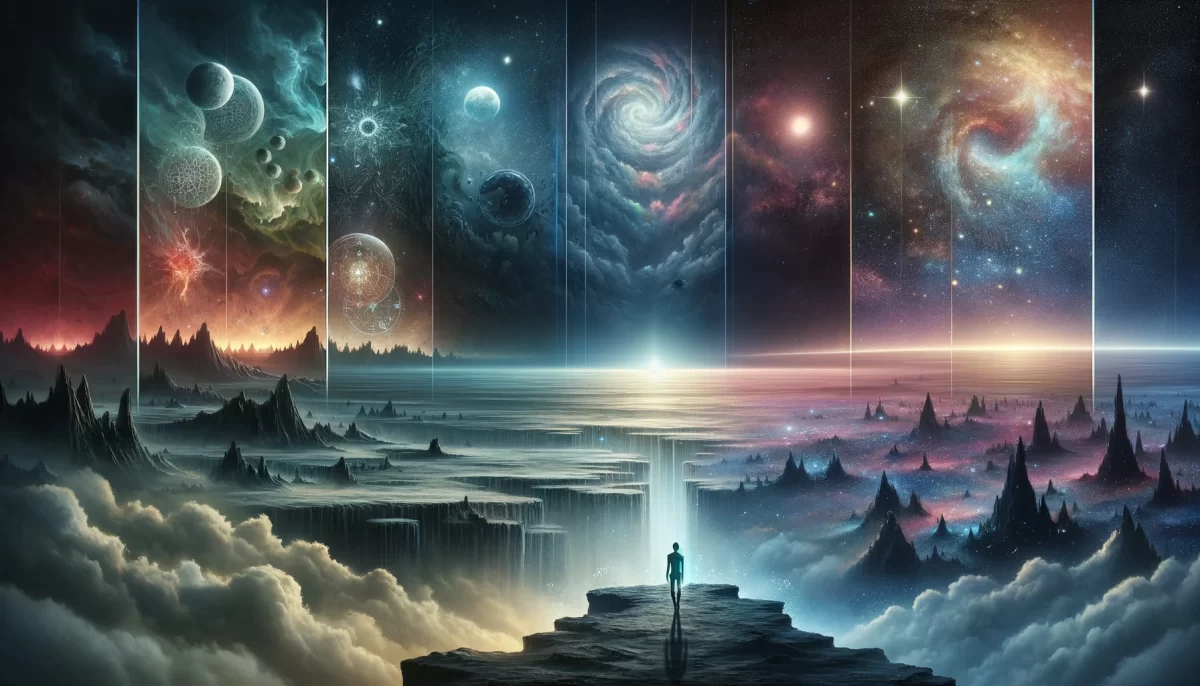
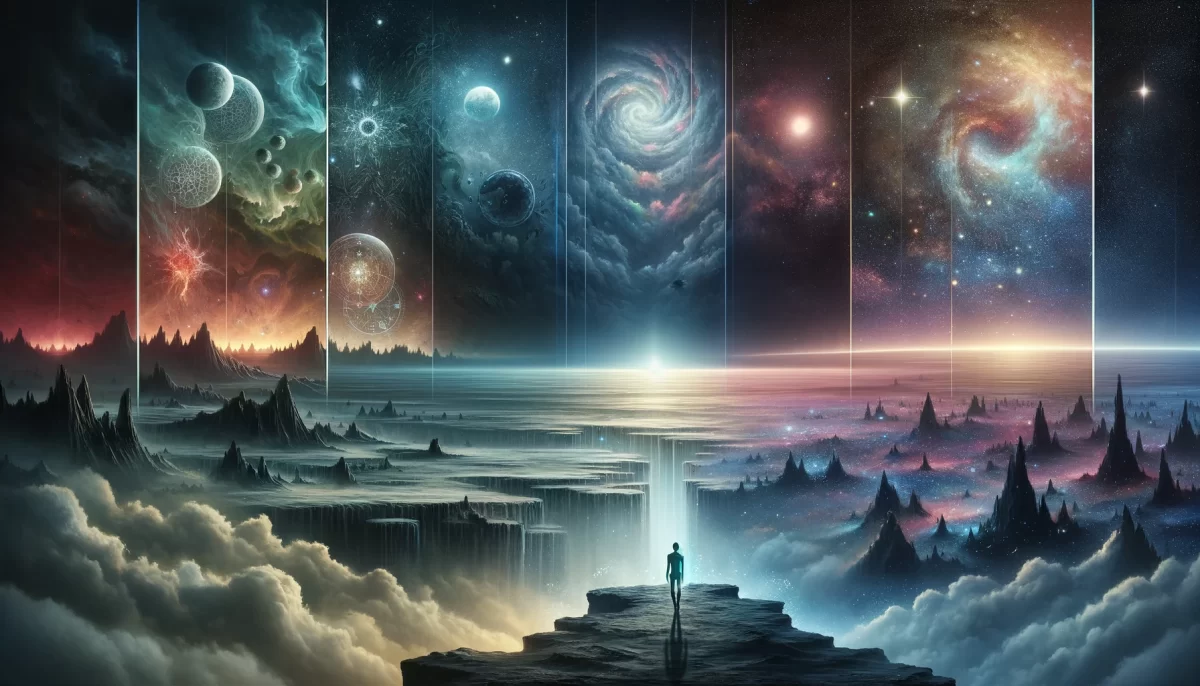
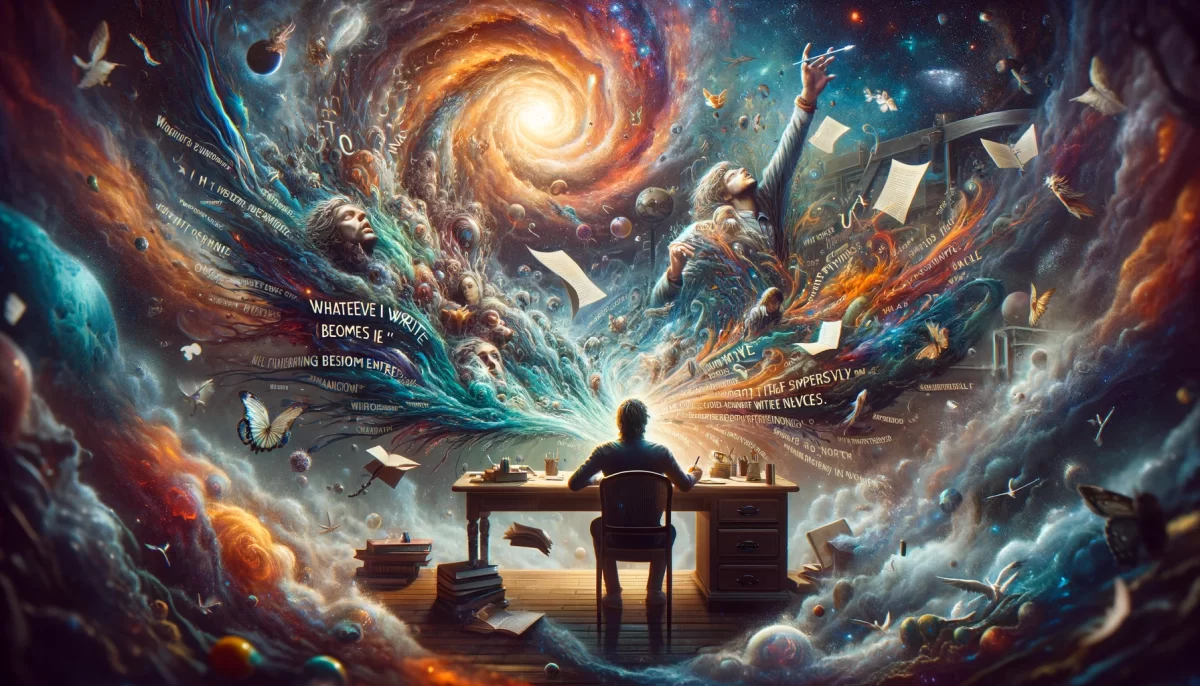
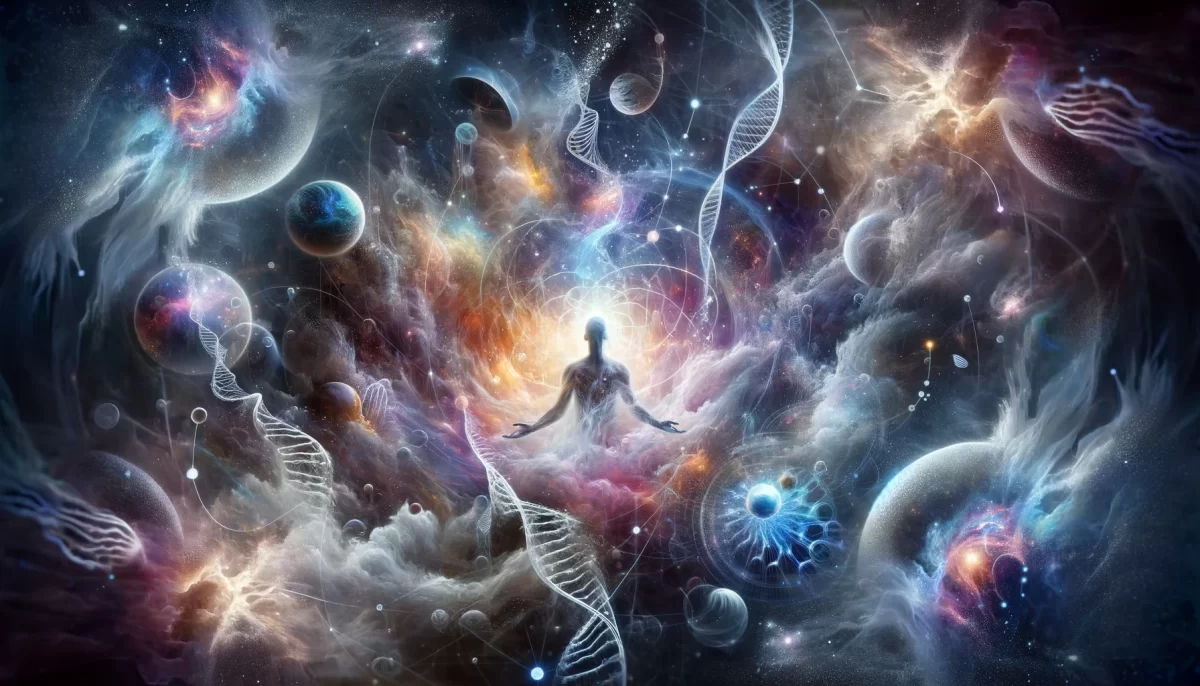
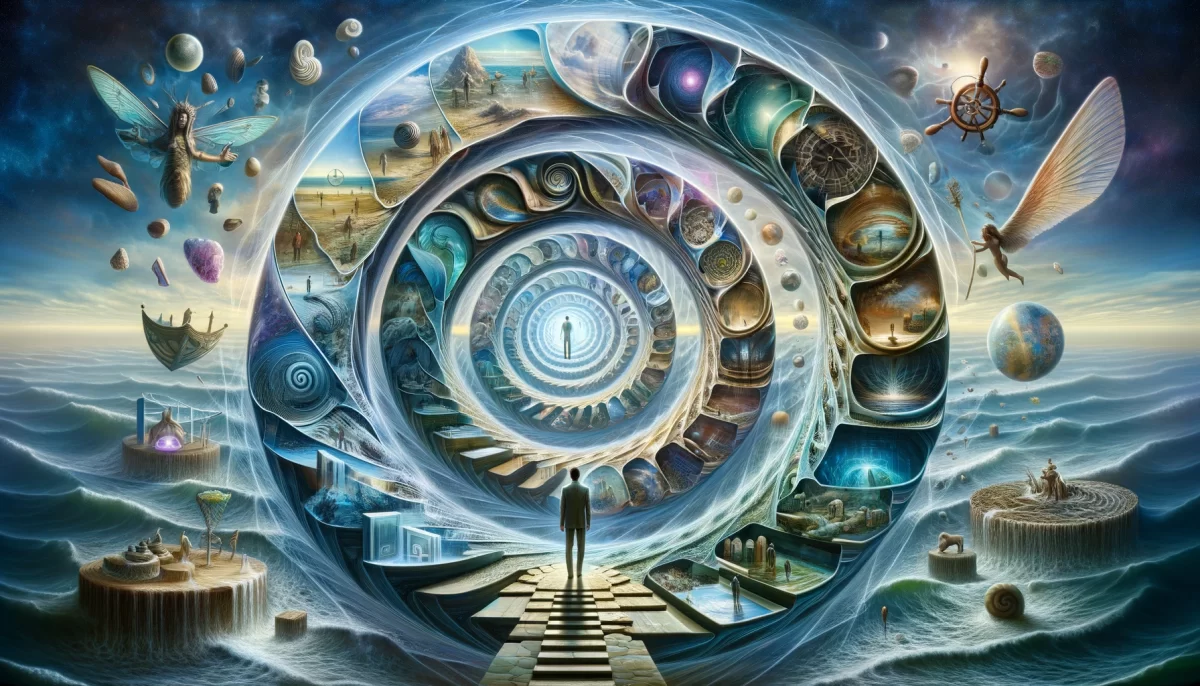
Leave a Reply